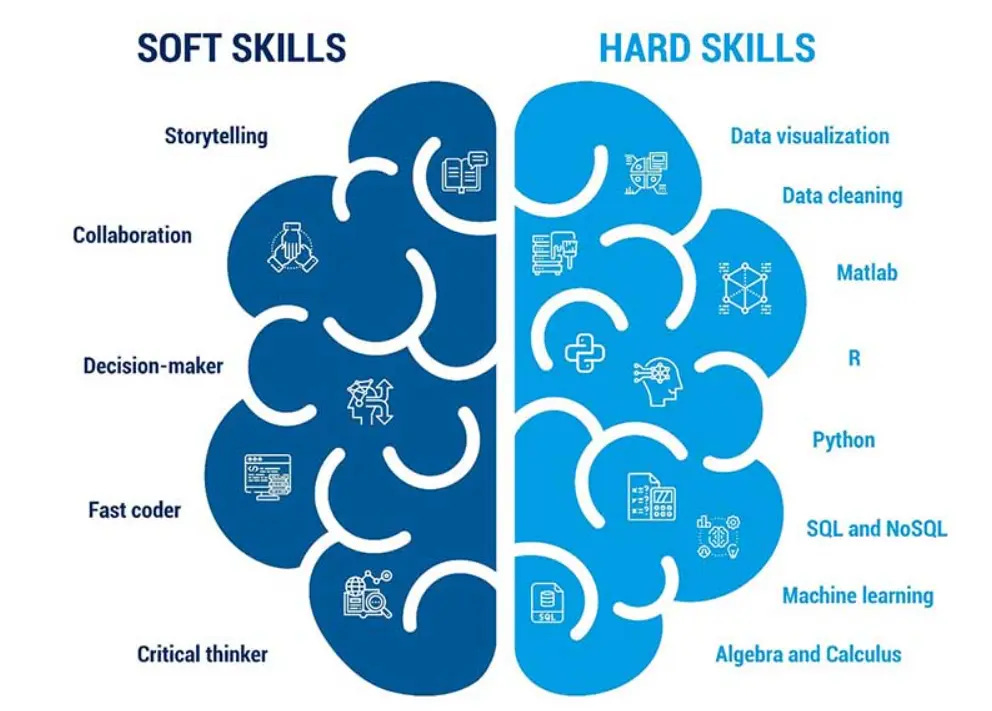Top 5 Essential Skills Every Data Analyst Needs to Succeed
In today’s data-driven world, the role of a data analyst is more crucial than ever. Businesses rely on data analysts to interpret complex data and provide actionable insights that drive decision-making. But what does it take to excel in this field?
Here are the top five essential skills every data analyst needs to succeed.
1. Proficiency in Data Analysis Tools and Techniques
At the core of any data analyst’s skill set is the ability to effectively use data analysis tools. These tools help in collecting, cleaning, analyzing, and visualizing data. The most commonly used tools include:
SQL: SQL (Structured Query Language) is the backbone of data management. It’s essential for querying databases, joining tables, and performing aggregations to extract meaningful insights from large datasets.
Excel: While Excel might seem basic, it remains a powerful tool for data analysis, especially for quick calculations, pivot tables, and basic visualizations. Its versatility makes it indispensable for data analysts.
Python/R: Python and R are programming languages widely used in data analysis. They offer advanced statistical analysis, machine learning capabilities, and powerful libraries for data manipulation (like Pandas in Python and dplyr in R).
Tableau/Power BI: Data visualization tools like Tableau and Power BI are crucial for creating interactive dashboards that allow stakeholders to easily understand and explore the data.
2. Basic Statistical Knowledge
Understanding statistics is fundamental to analyzing data and drawing accurate conclusions. A data analyst must be comfortable with various statistical concepts, including:
Descriptive Statistics: Understanding measures like mean, median, mode, variance, and standard deviation helps in summarizing and describing data.
Inferential Statistics: Concepts like hypothesis testing, confidence intervals, and regression analysis are useful for making predictions and informed decisions based on data samples.
Probability: Probability theory helps in assessing the likelihood of events and is foundational for more advanced techniques like Bayesian analysis.
Having a solid grasp of these statistical methods allows data analysts to make sense of the data, identify trends, and derive meaningful insights.
3. Critical Thinking and Problem-Solving Skills
Data analysis is not just about crunching numbers; it’s about solving real-world problems. Critical thinking and problem-solving are vital skills that help data analysts:
Identify Key Issues: Understanding the business problem and knowing which data points are relevant is essential for effective analysis.
Ask the Right Questions: Being curious and asking the right questions leads to deeper insights. For example, instead of simply looking at sales numbers, a good data analyst might ask, “What factors are driving changes in sales?”
Make Data-Driven Decisions: Analysts must interpret data accurately and provide recommendations that are actionable and aligned with business goals.
These skills are crucial for connecting the dots between data and actionable business strategies.
4. Attention to Detail
In data analysis, even a small error can lead to incorrect conclusions. Attention to detail is a crucial skill that ensures accuracy in data handling and analysis:
Data Cleaning: Before any analysis, data must be clean and free of errors. This involves identifying and correcting inconsistencies, handling missing values, and ensuring the data is accurate.
Validation and Verification: Double-checking calculations, ensuring consistency across datasets, and verifying the results are all part of maintaining data integrity.
Documentation: Proper documentation of your methods and processes helps in maintaining transparency and allows others to replicate or understand your work.
Meticulous attention to detail helps prevent costly mistakes and ensures the reliability of your analysis.
5. Effective Communication Skills
The ability to communicate findings clearly and effectively is perhaps one of the most important skills for a data analyst. No matter how thorough your analysis is, it’s of little value if you can’t explain your insights to non-technical stakeholders. This involves:
Data Visualization: Creating clear and compelling visualizations that convey the key insights from your analysis. Good visualizations tell a story and make complex data accessible to everyone.
Report Writing: Writing clear, concise reports that summarize your analysis and recommendations. These reports should be easy to understand, even for those without a data background.
Presentation Skills: Being able to present your findings confidently, whether in meetings or through formal presentations, is crucial. You need to be able to translate complex data into actionable insights that resonate with your audience.
Effective communication bridges the gap between data analysis and decision-making, making your insights valuable to the organization.
The role of a data analyst is both challenging and rewarding. By mastering these five essential skills—proficiency in data tools, strong statistical knowledge, critical thinking, attention to detail, and effective communication—you can set yourself apart and excel in this ever-evolving field. Remember, the key to success as a data analyst is not just in the technical skills you bring to the table, but also in your ability to apply those skills to solve real business problems and communicate your findings effectively.


